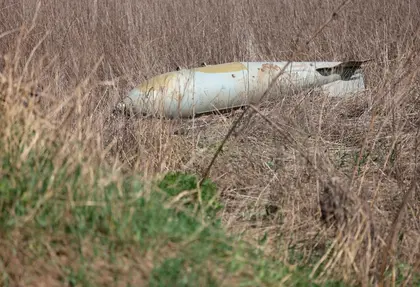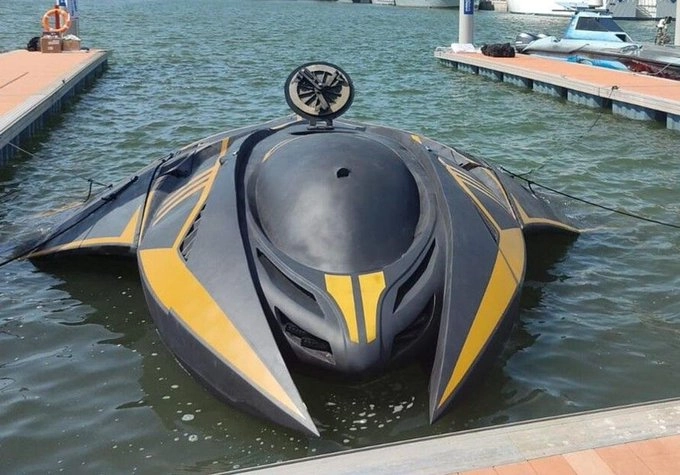President Volodymyr Zelensky on Monday asked the West to show the same commitment to Ukraine as it has provided to Israel, following air-defense efforts there that thwarted an assault from Iran over the weekend, employing at least 300 attack drones and missiles.
“By defending Israel, the free world has demonstrated that such unity is not only possible, but also one hundred percent effective,” Zelensky posted on social media. He added that, in fact, “the intensity of Russian attacks requires greater unity.”
JOIN US ON TELEGRAM
Follow our coverage of the war on the @Kyivpost_official.
At a press conference earlier in the day, alongside his Norwegian counterpart, Foreign Minister Dmytro Kuleba said, “We see that, when allies act as one in a very coordinated way, not a single missile reaches targets in Israel.”
“Everything we are asking from partners, even if you cannot act the way you act in Israel, give us what we need and we will do the rest of the job,” Kuleba said.
For nearly six months, the US Congress has stalled on providing $61 billion in military aid to Ukraine and Israel. President Joe Biden and Democratic members of the legislature have requested the aid package and the Senate has already passed it, but a minority faction of pro-Trump Republicans continues to block a vote in the House of Representatives.
After the Iranian attacks, Biden affirmed America’s “ironclad commitment to the security of Israel.”

What if Russia Wins?
The entire world witnessed allied action in the skies above Israel and neighboring countries. It demonstrated how truly effective unity in defending against terror can be when it is based on sufficient political will.
— Volodymyr Zelenskyy / Володимир Зеленський (@ZelenskyyUa) April 15, 2024
Israel, the United States, the United Kingdom, France, and… pic.twitter.com/dKQqt6TXit
Ukrainian engineers design new submarine that fires torpedoes
A submarine vessel that is capable of firing torpedo rockets conceptualized by Ukrainians at a United Arab Emirates-registered company has undergone tests for warfare use, the manufacturer announced recently.
The company, Highland Systems, says the vessel is able “to accommodate 10 passengers,” the firm’s website says. The Kronos submarine seacraft supposedly can move without sound at a speed of 50 kilometers per hour, and can carry a payload of explosives.
“The submarine features an innovative hull design which significantly reduces fuel. This brings a whole new concept into production of submarines across the world,” the company claimed.
World’s largest Ukrainian advocacy group, in Bucharest, calls for release of POWs
The largest umbrella advocacy group for Ukraine met in Bucharest, Romania, over the weekend, attended by President Volodymyr Zelensky, and the more than 200 community organizers assembled from 55 countries and 5 continents at Romania’s parliamentary building of the capital called attention to Ukrainian prisoners of war held by Moscow.
The Ukrainian World Congress (UWC) President of Canada Taras Grod called on “the global community to make efforts” for Russia to release the remaining Russian captives of those who defended the Donetsk regional city of Mariupol shortly after the all-out invasion that started in February 2022.
Ukrainian Col. Denys Propokenko said at the yearly summit that 900 military and other personnel from that city have been held as prisoners for more than two years.
Mariupol had a population of about 540,000 people and housed two of Ukraine’s largest steel and iron factories before it was taken over. After Donetsk, also occupied by Russia, Mariupol is the second most populous city in that region.
Swedish think tank says Russian war in Ukraine started as covert invasion in 2014
The Russo-Ukrainian war started 11 years ago, when a covert invasion of the Crimean Peninsula and the two easternmost regions of Luhansk and Donetsk occurred, a Stockholm analytical center wrote over the weekend, as co-authored by three political scientists.
Russia’s ongoing narrative that, after the Revolution of Dignity in 2014 in Kyiv, Russian speakers allegedly were being persecuted and wanted to join Russia, is disbunked by the analysts, who described Moscow's role in orchestrating a covert invasion of the country.
The report’s assessment says that “despite the obvious involvement of Russian actors in the conflict from the very start, a continuously popular narrative on the fighting in the Donbas as an intra-Ukrainian civil war rather than a Russian-Ukrainian interstate war has survived until today.”
Kyiv Post had a prominent presence in the invaded areas since the initial days of the invasion, following the pro-democracy revolution that saw then-President Viktor Yanukovych flee to Russia.
This correspondent sent dispatches from the Donetsk town of Sloviansk, when the armed uprising started on April 12, 2014, when a Russian colonel reservist, Igor Girkin, took over the town with other operatives.
“Continuing narration of the armed conflict in Donbas as a ‘civil war’ has prevented Western decision-makers and the public from learning much-needed lessons amid Russia’s ongoing subthreshold aggression against NATO as a whole, and individual democratic countries in particular,” the Stockholm Center for Eastern European Studies posted on April 12.
You can also highlight the text and press Ctrl + Enter







